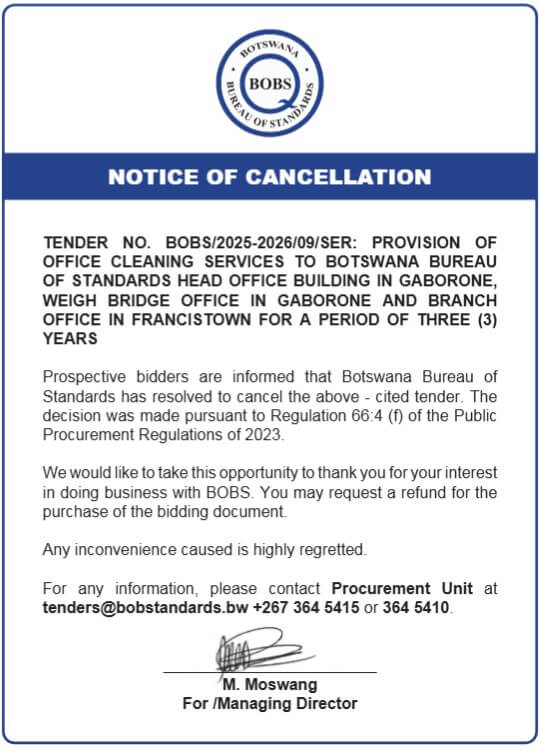Lobatse Clay Works Reopens Seven Years After Ceasing Operations
After seven years of closure, Lobatse Clay Works (LCW) has finally reopened its doors to the local and regional markets, marking the end of a major refurbishment phase that began in May 2022.
LCW halted operations in 2017 due to significant operational challenges, including high production costs, primarily from fuel, and a deteriorating plant that was no longer operating efficiently.
The closure left many jobless and dealt a blow to Lobatse’s local economy.
However, the Botswana Development Corporation (BDC) has now revived the plant, bringing hope to the region.
Specializing in face bricks and pavers, LCW’s return is expected to contribute significantly to economic development and stimulate economic activities in Lobatse and Botswana at large.
BDC Managing Director, Cross Kgosidiile, emphasized the importance of reviving this once-thriving business.
“It’s imperative to bring this operation back to life. We contribute to commercially viable industries that can scale up production and export.
With rising cement prices, we should capitalize on our abundant clay resources to ensure a steady supply of products in the market,” said Kgosidiile adding that P228 million had been invested in the turnaround strategy, which included refurbishing the brick manufacturing plant and implementing remedial works.
Market research has shown strong demand for LCW’s products in Botswana and neighboring countries such as the North West province of South Africa, Namibia, and Zimbabwe.
The goal is to restore LCW to its peak production capacity of 36 million bricks annually.
Minister of Trade & Industry, Mmusi Kgafela, noted that the revitalization of LCW is part of Botswana’s broader industrialization strategy.
“Industrialization leads to economic diversification and social advancement, not just for Lobatse but for the entire nation. We aim to have a private-sector-led economy, and through BDC, we have seen growth in the private sector, demonstrating progress toward economic diversification. Manufacturing is key to this goal—we must focus on creating finished products, value chain development, and agro-processing to extract more value from our resources.” Kgafela said.
The reopening of LCW will bring economic benefits that extend far beyond the plant itself.
At full capacity, the plant will create 240 jobs, and 80 jobs were generated during the refurbishment phase.
Currently, the plant employs 114 workers, 70 percent of whom are Lobatse residents.
Boitshwarelo Lebang-Kgetse, LCW’s caretaker Chief Executive Officer, highlighted the company’s long-standing role in Botswana’s industrialization and infrastructure development.
“We have expanded our capacity to meet the growing demand for our products. Our high-quality clay gives us an edge in producing top-tier bricks with cutting-edge technologies and machinery.
The brick industry is driven by infrastructure development and urbanization, which shows the strength of our domestic market.
We implemented a comprehensive turnaround strategy that modernized the business, making it more efficient, sustainable, technologically advanced, and competitive in local and regional markets,” said Lebang-Kgetse.
LCW is set to use a new hybrid fuel system, combining diesel and coal, which will significantly reduce fuel costs.
The company sources its clay from mines in Mmamabula and Lobatse for its wide range of products.
BDC, a 100 percent state-owned entity, remains committed to driving industrialization in Botswana through investments like the revival of LCW.















